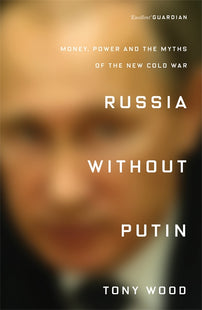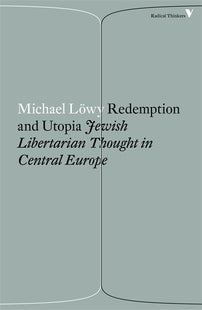Putin’s War and Jewish History
The history of Ukraine is inextricably linked with antisemitism, from the pogroms of the Russian Civil War to the Ukrainian nationalist complicity in the Holocaust. Such historical connections have once more come to the fore during Russia's invasion of the country, now lead by a Jewish president. Here, historical sociologist Brendan McGeever writes on this complicated past, and what the present Jewish attachment to the idea of Ukraine means for both Jewish identity and the ongoing history of racism in the region and beyond.

As the disaster in Ukraine unfolds, the German Jewish writer and philosopher Walter Benjamin has often come to mind. In his final text, written as the nightmare of Nazism descended upon him, Benjamin told us that history cannot be understood as progress. Instead, said Benjamin, history is a storm, a “catastrophe which keeps piling wreckage upon wreckage”, producing a “pile of debris” that “grows towards the sky”.
If we think about the Russian invasion from another – this time east European – Jewish standpoint, we can see that a quiet but no less extraordinary transformation in Ukrainian Jewish life has been underway.
A century ago, Ukraine was the epicentre of antisemitism. This was the age of the pogrom, the most violent chapter in pre-Holocaust modern Jewish history. The word ‘pogrom’ derives from the Russian verb gromit’; to plunder or destroy. Like kiosk, it is one of the few to have entered the English language from Russian. And it did so just as news spread to the Anglophone world of shocking waves of anti-Jewish violence at the turn of the century. Following in the wake of the Bolshevik Revolution, the Russian Civil War saw pogroms in which at least 100,000 Jews were murdered, perhaps many more. Many of them killed by Ukrainian nationalists fighting in Simon Petluira’s army. There was antisemitism on all sides, but ultimately, it was the Red Army that brought the violence to a halt.
The place names we are hearing on the airwaves just now – Kyiv, Cherkasy, Chernihiv, Zhytomyr, Odesa, Uman – were all major sites of anti-Jewish violence a century ago. The historian Miri Rubin describes these places as lieux de memoire of Jewish history. For Elissa Bemporard, Jewish collective memory has been fortified by these atrocities, as Jewish identity became entwined with catastrophes in Ukrainian lands at the start of the last century.
This antisemitism was carried into the middle of the twentieth century through the collaboration of Ukrainian nationalist leader Stepan Bandera and the Organisation of Ukrainian Nationalists (OUN) in the Holocaust. For many Jews, Ukraine became synonymous with antisemitism.
Yet today, as Russia invades, that association no longer holds. The present Ukrainian state is headed by Volodymyr Zelenskiy. It would have been unthinkable to those Jews in the throes of war and revolution a century ago to envisage a Jewish President of Ukraine. In the passing of time, something significant has clearly taken place. Has the past simply faded from view?
Not really; it exists in plain sight. There are streets in Ukraine today that are named after Simon Petliura, and there is a monument to him in the city of Vinnytsia; the Ukrainian national hero Bohdan Khmelnytsky adorns the 5 hryvnia banknote, while in Jewish collective memory he is associated with a 17th century massacre in which tens of thousands of Jews perished; there is a Stepan Bandera Boulevard in Kyiv, and the pogromist history of the OUN is routinely occluded in official Ukrainian nationalism.
And yet, Ukrainian Jewry cleaves to the nation and does so more or less successfully. Statements against the Russian invasion from mainstream Jewish organisations in Ukraine underline that attachment.
This shows the absurdity of Putin’s imperialist war of ‘denazification’. By equating any claim to contemporary Ukrainian statehood with ‘Nazism’, he vandalises Russian, Jewish and Ukrainian history. Only such a wilful distortion of the past, argues Catriona Kelly, “could allow Putin, a Leningrader, to inflict on Kharkiv, Mariupol and Kyiv and Mykolaiv the siege warfare that devastated his birthplace in 1941-1945”.
Jewish history has become entangled in contemporary debates about the presence of the far right in contemporary Ukraine. Though electorally insignificant, it wields influence on the military front through the Azov Battalion – now incorporated as an official regiment in the National Guard. But Putin’s propaganda offensive distorts things beyond recognition. The truth is, whatever presence the far right held in Ukraine has only been strengthened by the Russian invasion.
The realities of Jewish life in Ukraine today underline something basic but important about history: what seems fixed now can change tomorrow. Just as Ukraine has evolved for Jews, Putin’s rule in Russia will become a thing of the past. Maybe sooner than we expect.
But the war has also brought into view the complexities of history, including diasporic understandings of the Jewish Ukrainian past. There are limitations to the version of Jewish history that presents a teleology of violence, a tale of the ‘longest hatred’. Seen from a different perspective, the pogroms of yesterday may also be understood as interruptions to centuries of shared struggle and co-existence.
Something important happens when we place east European antisemitism in conversation with other racisms. For some time now, Ukraine and Russia have been pogrom-free for Jews. But the same cannot be said for all minoritized communities in the region. We need only recall the pogrom – yes, pogrom – that occurred in 2018 in Holosiivskyi Park in Kyiv, not against Jews, but against Roma people; a pogrom that occurred just miles from a site of anti-Jewish violence in 1919. And though it has been chronically under-researched, we know enough about anti-black and anti-brown racism in Russia to know the problem is serious, and that the disappearance of the anti-Jewish pogrom has not been accompanied by the disappearance of racialised hostility. And we have all been witness to the spectacle of the way refugees have been hierarchically categorised at east European borders on account of race, with Black migrants last in line. This ongoing history of racism provides a vantage point from which to consider the history of antisemitism, and therefore, Jewish history as well.
Where does this leave us? From the perspective of the pogroms of the Civil War a century ago, Jewish gravitation to the Ukrainian nation is extraordinary. But the history of antisemitism in the region might be better understood by placing it in conversation with the structuring impact of racisms past and present. Jewish attachment to the idea of Ukraine in recent years does not mean that the racialising forces that made Jewish life unliveable in the past have gone away for everyone. Doing this kind of work might also help us to better comprehend the storm of history, as the wreckage piles higher and higher, growing ever closer to the sky.
Brendan McGeever is Senior Lecturer in Sociology in the Department of Psychosocial Studies at Birkbeck, University of London. He is also based at the Birkbeck Institute for the Study of Antisemitism. He is the author of Antisemitism and the Russian Revolution (Cambridge University Press, 2019). Twitter: @BrendanMcGeever
[book-strip index="1" style="display"]



